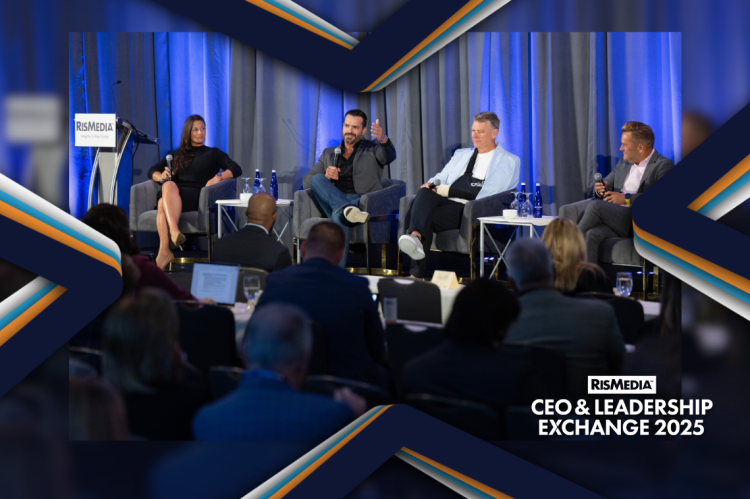Above, from left: Jackie Louh, Alex Vidal, Vince Leisey and Duff Rubin. Photo by AJ Canaria.
Recruiting and retention is a popular theme at real estate conferences and conventions across the board—and while it’s been talked about throughout the years, according to Berkshire Hathaway HomeServices Fox & Roach, REALTORS®/The Trident Group CEO Larry Flick V, the strategies continue to change, looking vastly different from even just five years ago.
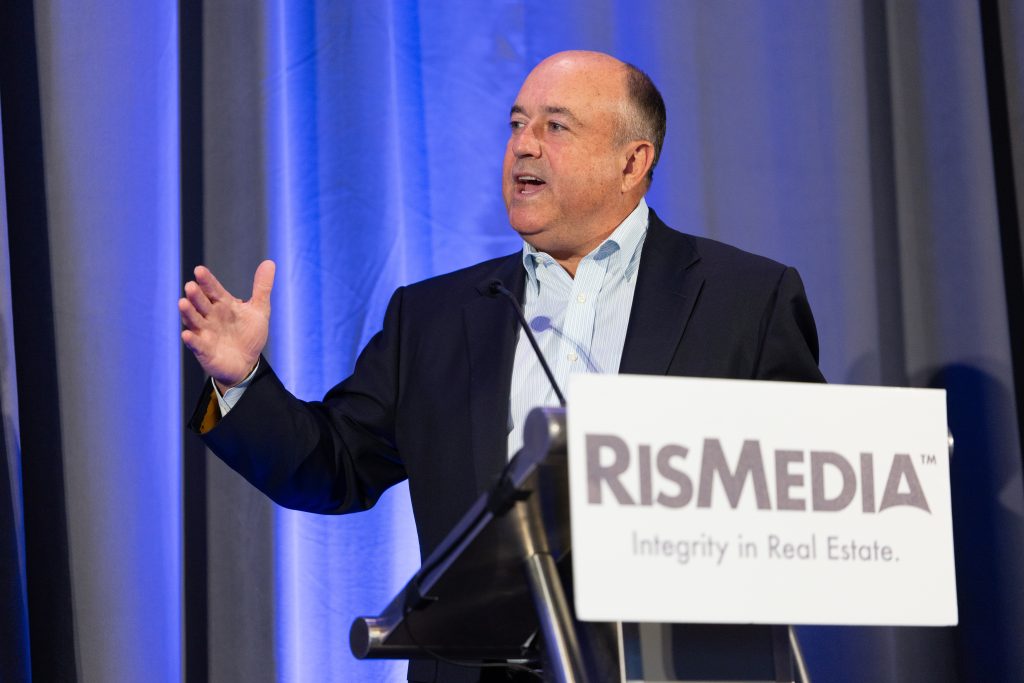 Above: Larry Flick V. Photo by AJ Canaria.
Above: Larry Flick V. Photo by AJ Canaria.
Moderating the “Shoring Up Your Agent Force” panel at RISMedia’s 37th Annual CEO & Leadership Exchange earlier this month, Flick and panelists Jackie Louh, COO of Lamacchia Realty; Vince Leisey, president of Berkshire Hathaway HomeServices; Alex Vidal, president of ERA Real Estate; and Duff Rubin, regional president, Southeast, Coldwell Banker Realty, Coldwell Banker shared their tried-and-true strategies for recruiting and retention in the changing real estate landscape.
Diving into the topic at hand, Rubin made clear to the 400-plus attendees that before you can even start talking about recruiting, you better have a very strong retention plan.
Committed to not only making sure the company always puts its agents first, but to also coming up with a game plan in order to service its agent roster, Rubin noted that they’re experiencing the strongest retention numbers in the history of the company.
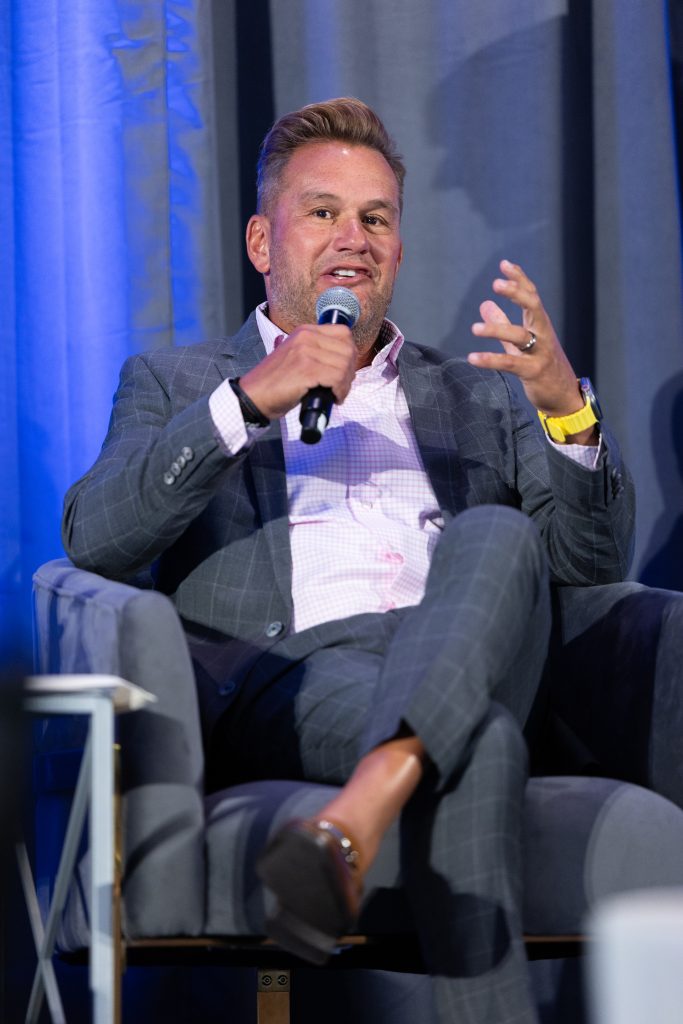 Above: Duff Rubin. Photo by AJ Canaria.
Above: Duff Rubin. Photo by AJ Canaria.
“I know a lot of companies brag about their technology or look at technology as the answer, and I know we’re investing millions in AI—AI is definitely the future, and we need all of our agents to embrace it—but when I look at what we’re trying to deliver as a unique value proposition, it’s really based on concierge service,” he said.
Providing true white-glove service, a listing concierge program helps agents list and market their product, while a transaction concierge service takes all the paperwork off their plate.
“If we can make our agents more successful, being in their zone of brilliance, which is in front of customers, then we’re going to see the rewards of being able to offer all the services,” said Rubin.
“Being able to provide concierge services at the agent level every day is something you can depend on,” he added. “Technology sometimes isn’t your friend, but when you guarantee and commit to servicing your agents, I think that’s something they can come back to.”
Laser-focused on in-house support and weekly training, the concept at Lamacchia Realty is to keep everything in-house for agents—providing a one-stop shop complete with listing assistants, buying assistants and even pre-list services.
“We offer it to the agents that want it (it’s not required by any means), and as far as adoption goes, it’s not tough to get them onboard because they see the value, they hear from the other agents that are using it and they see that it takes a lot of the busy work off of an agent’s plate so they can focus more on client-facing activities, prospecting and getting more business,” explained Louh.
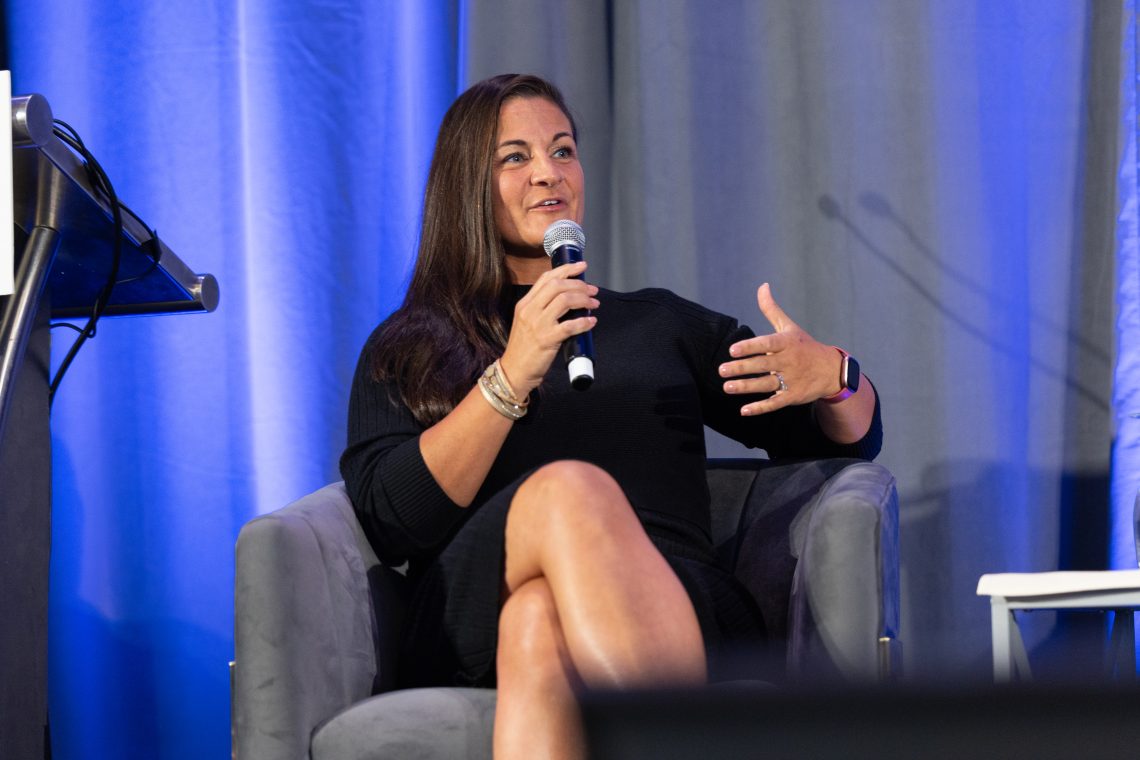 Above: Jackie Louh. Photo by AJ Canaria.
Above: Jackie Louh. Photo by AJ Canaria.
But as we get back into a more normal market where agents have to prove their value, where they have to show what they’re good at doing, and where they have to learn the basics again, training is more important than ever before, panelists agreed.
“We have agents who haven’t ever had to do a price reduction on a listing because the past few years it has been who can list a house the fastest, who can show a house the fastest and who can write an offer the fastest, so agents haven’t had to use their skills,” explained Louh. “But they need to get back to the basics and learn the skills again.”
Attract, engage and hire: Time-tested methods for modern brokerage needs
Pivoting to recruiting strategies specifically, and what’s being done to build one’s army of sales associates, Leisey—a firm believer in the importance of company culture and getting people back into the office in the wake of the COVID-19 pandemic—pointed to bringing people into company events, company wide meetings and mastermind groups as one of the most important aspects of the recruiting process.
“We operate, as an organization, based on what I call the ‘attitude of abundance,’ where everybody openly shares what they’re doing as well as what has worked and what hasn’t worked,” said Leisey.
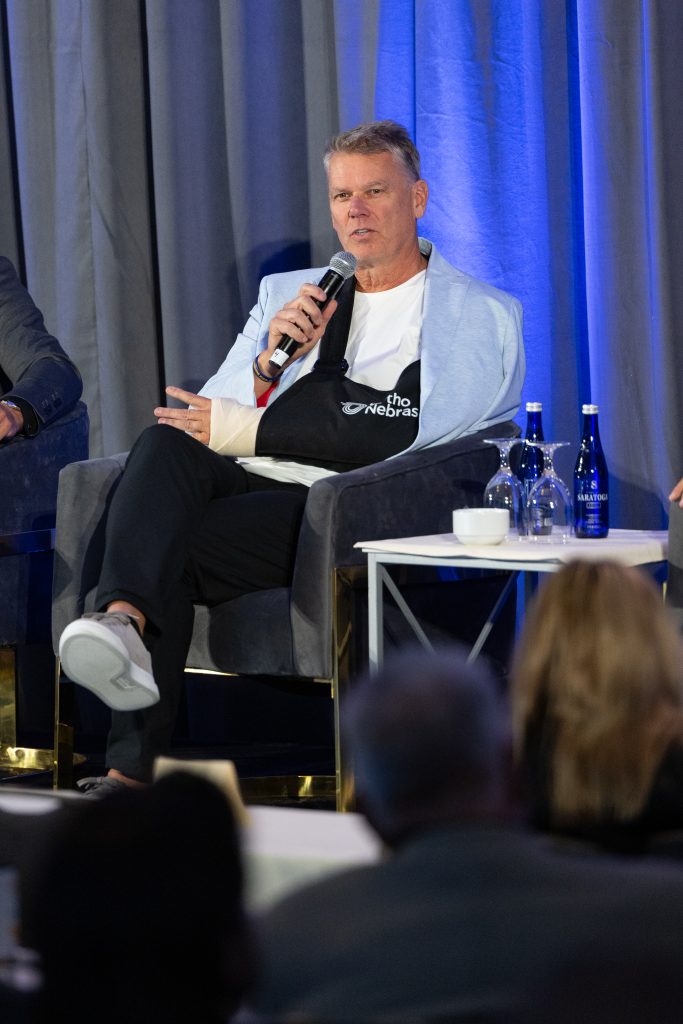 Above: Vince Leisey. Photo by AJ Canaria.
Above: Vince Leisey. Photo by AJ Canaria.
Leaning into both coaching and culture, Leisey explained that it’s all about coming together in order to create energy, excitement and enthusiasm.
“It’s about learning from one another and growing together,” added Leisey, who said that people want to be energized—especially those who have been in the business for a number of years.
“You’ve got to figure out a way to continue to reenergize the people that have been around for a long time—and so recruiting, I mean, that’s it. We lean into coaching and culture and not much more,” noted Leisey, who uses his retention activities for recruiting, specifically pointing to the firm’s highly productive teams as some of their best recruiters.
In fact, according to Leisey, when someone comes to the organization and they’re a 20-something, they’re encouraged to join a team.
“The likelihood of them being successful with a team, helping manage and coach and hold them accountable every single day is substantially better than us as an organization where we only have so many managers to go around,” said Leisey. “Without exception, almost everybody that leaves a team stays with our organization, as they’ve seen us help grow those other teams. So in the long run, a lot of our growth comes internally from people breaking off teams and staying with our organization.”
Louh echoed the same sentiment, pointing to the firm’s agents as its best recruiters. “They’re the ones that are sending in so many agent referrals. They’re talking up the company, they’re posting about their success—and other agents are seeing that, and they’re starting to raise their hand and say ‘tell me more about the company.’ So you have to use your agents as your recruiters. You have to teach your agents how to recruit, what to say and what not to say.”
“What I’ve found throughout my career, and what’s really interesting, is that people hate recruiting because they suck at it. And that’s just the reality. But once they figure out how to do it, and they’re good at it, then they look forward to it,” said Vidal, who created both a coaching and retention/recruiting coaching program because he wanted to recruit more, yet he needed to empower a force that was bigger than he was.
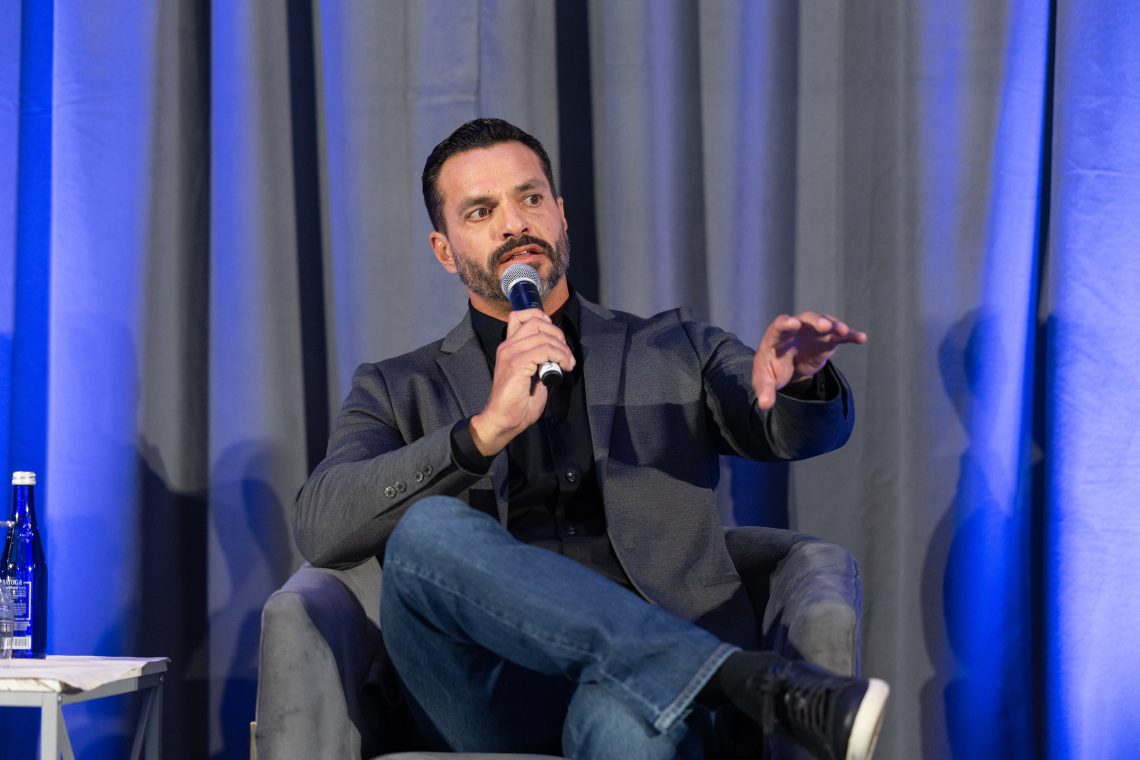 Above: Alex Vidal. Photo by AJ Canaria.
Above: Alex Vidal. Photo by AJ Canaria.
If you want to become a great recruiter, the first step is to determine who you’re targeting, and according to Vidal, there are four people you need to target—and a specific order in which you need to target them:
- The agents referred to you by other agents in your company
- The co-op agents who already know your company (who are already doing business with you)
- The agents who have left that you want back
- The “cold call” (a direct cold call because the agent specializes in the area you’re looking to grow into)
From there, it’s all about being upfront as far as what you’re doing. And while 99% of recruiting calls typically end with the agent saying they’re happy where they are and that they love their broker, Vidal is working closely with his broker/owners—jumping on Zoom calls with them and utilizing the chat feature to help them work through objections that are thrown their way.
“In order to be great at recruiting, you have to be great at retention because if you have a lot of people leaving (through) the back door, you’re going to be known as a broker that everybody’s leaving,” explained Vidal.
“When you look at recruiting, the first thing you better know is who you are as a company,” said Rubin. “We’ve seen the worst of times and the best of times. We’ve seen wars, we’ve seen depressions, we’ve seen recessions, and we’ve seen fires—and we know how to support our agents through good and bad times. And I think that’s very important to our agents. They need to know that they can depend on us through whatever market is coming next.”



